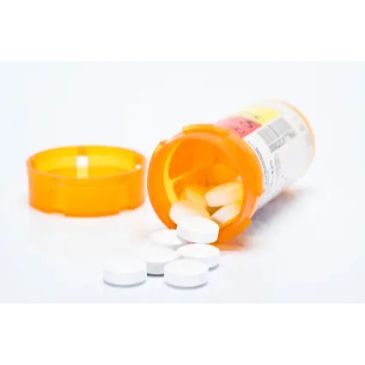Most of us are quite familiar with the dangers of driving under the influence of alcohol or illegal narcotics. However, many people believe that if someone is taking prescription medication then he or she cannot be arrested for DUI. Those people are wrong!
You may be thinking, “If my doctor says I’m allowed to take this medicine, there’s nothing illegal about driving at the same time.” While there is nothing wrong with possessing or taking medication pursuant to a doctor’s orders, the side effects of the medication can become problematic. You may not have heard of a DUID, but it’s very similar to a DUI or DWAI, except it stands for Driving while Under the Influence of Drugs. In Colorado, the law does not distinguish DUI related to alcohol from DUI related to prescription drugs.
How Common Is Driving Under the Influence of Drugs?
 Statistics from the 2016 National Survey on Drug Use and Health (NSDUH) indicate that 20.7 million people age 16 or older had driven under the influence of alcohol in the past year while 11.8 million people drove under the influence of illegal drugs.
Statistics from the 2016 National Survey on Drug Use and Health (NSDUH) indicate that 20.7 million people age 16 or older had driven under the influence of alcohol in the past year while 11.8 million people drove under the influence of illegal drugs.
But what about prescription drugs? According to a 2010 study of deadly crashes, research showed that of all the drivers who tested positive for drugs in their bloodstream, 47% had taken a prescription drug, 37% marijuana, and 10% cocaine. Of the prescription drugs, the most common were pain relievers. More than a quarter of the drugged drivers were age 50 or older.
What Drugs Are Most Dangerous for Drivers?
While taking prescribed medicines under the supervision of a doctor is obviously allowed and encouraged, it’s still illegal for any person to drive in an impaired state, and Colorado doesn’t care if that impairment is caused by drugs, alcohol, or medicine. Remember, you should avoid mixing medications, or drinking alcohol while on medication. Additionally, make sure that you carefully follow your doctor’s instructions for taking any medication—overusing prescription medication can lead to impairment that could have you being arrested for DUI.
Here’s a list of drugs, both illegal and prescription, that have been known to hamper a person’s ability to drive:
- Alcohol
- Ayahuasca
- Cocaine
- DMT
- GHB
- Hallucinogens
- Heroin
- Inhalants
- Ketamine
- Khat
- Kratom
- LSD
- Marijuana (cannabis)
- MDMA (ecstasy/molly)
- Mescaline (peyote)
- Methamphetamine
- Over-the-counter cough/cold medicines (dextromethorphan or DXM)
- PCP
- Prescription opioids
- Prescription sedatives & tranquilizers
- Prescription stimulants
- Psilocybin
- Rohypnol® (flunitrazepam)
- Salvia
- Steroids (anabolic)
- Synthetic cannabinoids
- Synthetic cathinones

These drugs affect drivers in myriad ways. Some substances such as alcohol and opioids, both being central nervous system depressants, lead to slow reactions times and drowsiness. Stimulants like cocaine and methamphetamines may increase the likelihood of aggressive and erratic driving. Certain drugs will cause dizziness, blurred vision, or decreased coordination. No matter what the effect, anything that interferes with your ability to concentrate on the road and safely operate a motor vehicle falls under the umbrella of impaired driving.
It should also be noted that medical marijuana, while legal in Colorado, is not exempt from the law when it comes to impaired driving.
What Are Colorado’s Laws for Driving Under the Influence?
Colorado has implemented a lesser included offense of Driving Under the Influence, DWAI: Driving While Ability Impaired. See C.R.S. § 42-4-1301 (2017). This makes it illegal for a person to operate a motor vehicle when his ability to safely do so has been affected to the slightest degree. For the DUID charge, the law applies to any driver who is “substantially incapable of safely operating a motor vehicle,” and it makes no difference if the drug was prescribed by a doctor. If a person’s prescription medication affects his ability to operate a vehicle to the slightest degree, he runs the risk of being arrested for the lesser offense of DWAID.
Of course, dealing with drug cases is not as cut and dry as dealing with alcohol cases, because the testing procedures are more subjective in nature. If you are suspected of DUID or DWAID, you will be compelled to take a blood test as confirmation for the impairment, as a breathalyzer only detects alcohol.
We have found that police and prosecutors lean on the side of overstating their case when it comes to charges of impaired driving. This particularly applies to prescription medicine. No one should have to go to jail for a simple mistake, and that’s what many of these cases are. A skilled attorney will fight to have your charges lowered or dismissed altogether.
Timothy R. Bussey has represented defendants for 25 years and has a reputation as one of Colorado’s top DUID attorneys. He previously served in the U.S Air Force and is a nationally recognized author on legal strategies. He fully understands the latest laws pertaining to driving while under the influence of prescription drugs and will aggressively protect your rights. For a free consultation, call (719) 475-2555 today.
